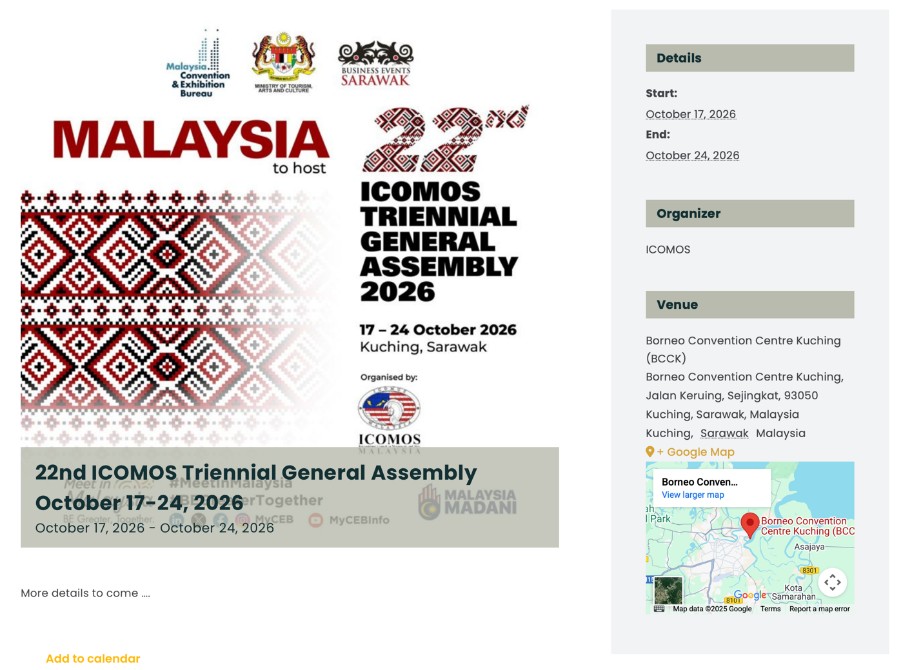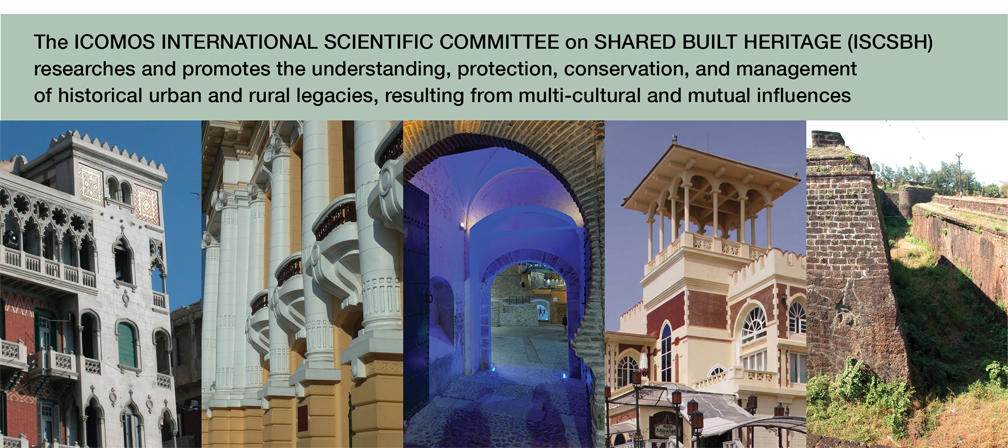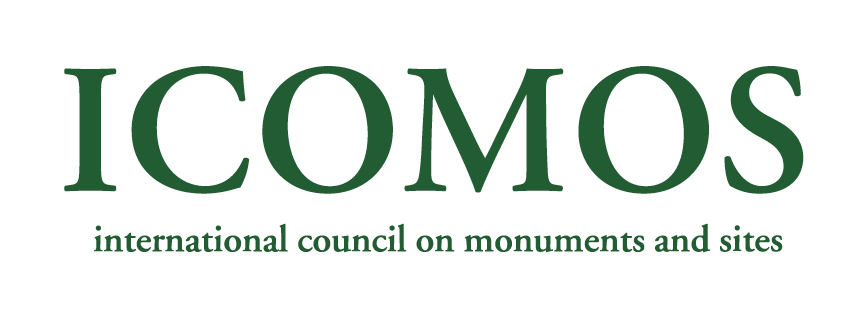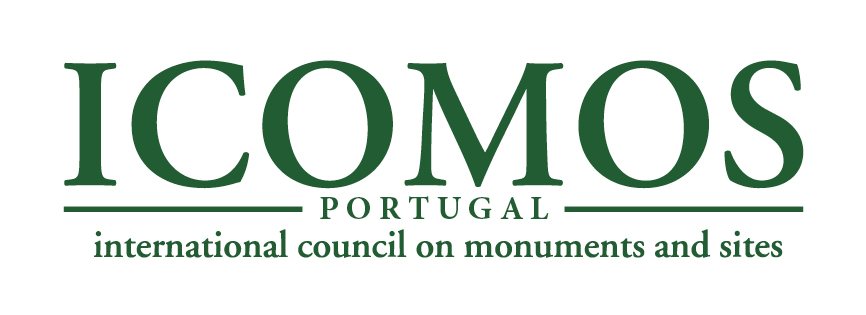Happy New Year 2026 🥂🎊
As we begin 2026, the International Scientific Committee on Shared Built Heritage (ISCSBH) warmly wishes all its members, colleagues, and partners a Happy New Year.
ICOMOS AGA 2026: Kuching, Malaysia
The next Triennial General Assembly will be held in Kuching, Sarawak, Malaysia, 17–24 October 2026, under the theme:
LIVING HERITAGE: RESPECT – ENHANCE – ACCEPT – PARTNERSHIP

For more information, click here
ISCSBH AGM 2025 – Annual General Assembly
The ISCSBH Annual General Meeting 2025, held on 30 December 2025, marked a key moment for reflection and planning. Members reviewed achievements from 2025, discussed challenges, and set priorities for 2026. This meeting also prepared our contributions for the upcoming ICOMOS Triennial General Assembly in Kuching, Malaysia, 2026.

WG01 – ISCSBH Concept: ICOMOS General Assembly 2025, Lumbini
The 2025 International ICOMOS General Assembly, held in Lumbini, birthplace of Buddha, marked a significant milestone for shared heritage. It highlighted the importance of collaboration across scientific committees and national chapters.
Lumbini, a UNESCO World Heritage Site (1997), includes the Maya Devi Temple, ancient monastic ruins, and the Ashokan Pillar. Its universal significance lies in historical, spiritual, and cultural values, aligning with the Symposium theme: “Perceptions of Heritage and Resilience.”

For more information, click here
60 Years of ICOMOS
The 2025 Assembly celebrated the 60th anniversary of ICOMOS with a roundtable and festive dinner on 14 October 2025. Presentations reviewed six decades of achievements, while leaders including Teresa Patrício, Toshiyuki Kono, and regional Vice Presidents reflected on challenges and future visions.
Seven resolutions were adopted, including amendments to the Ethical Principles, reinforcing respectful conduct, cultural diversity, non-discrimination, and professional responsibility.

WG03 – Academic Visits and Lectures: China, October 2025
Dr. Maria José de Freitas visited Beijing and Xi’an, engaging with students and young scholars in shared built heritage.
Highlights:
- Miyun Great Wall: Visits to Panlong Mountain, Gubeikou, Guanmen, and Jijiaying Forts, emphasizing digital interpretation and public engagement.

- Xi’an Sites: Lishan Garden, Terracotta Army, and Giant Wild Goose Pagoda showcased sustainable conservation and living heritage practices.

- Lectures and Workshops: Keynote speeches fostered dialogue, exploring challenges, opportunities, and multi-stakeholder collaboration in heritage management.

Working Groups – New Structure (2025)
As a result of the analysis carried out by our General Secretary, John Ward, and discussed at our last General Assembly on 6 December 2024, we have opted for a new articulation of our Working Groups in 2025:
- WG 01 – SBH Concept – Principles – Perspectives – Dissonant Architecture
- WG 02 – SBH at Risk – Preparedness – Response – Recovery – HIA
- WG 03 – SBH Study Tours – Webinars – Activities – ISC Connections
- WG 04 – SBH Communication – Newsletters – Website
- WG 05 – SBH Support – Secretariat – Members Directory – PUBLICOMUS
- WG 06 – SBH & Emerging Professionals
PUBLICOMUS – Share Your Work!
A new digital platform by ICOMOS, PUBLICOMUS is now available for sharing educational and scientific content produced by ISCSBH members.
Articles, webinars, and academic outputs are welcome.
For more information, click here
Join Us in Shaping the Future of Shared Heritage
With a growing network of dedicated professionals, we look forward to deepening our impact on shared built heritage worldwide. Let’s continue this journey together in 2025 and beyond!

What is SBH?
The ICOMOS International Scientific Committee on Shared Built Heritage (ISCSBH) was set up to promote greater protection and conservation of the shared heritage built over time by different cultures and civilisations with different social and religious backgrounds. For this purpose, the ISCSBH researches and fosters discussion on the understanding of ‘shared’ and on the management of historical built legacies resulting from multicultural encounters and mutual influences. The group is relatively young, having started in 1998 as the Scientific Committee on Shared Colonial Architecture and Town Planning, and changing its name in 2003 to reflect more open objectives.
In some cases, shared heritage is at the centre of identity narratives constructed by different communities and nations; in others, it is the source of tension, and is therefore neglected. The aim of the scientific group is therefore to understand how shared heritage is valued and promote its revitalization, rehabilitation, and conservation, encouraging the use of existing structures and of traditional building techniques as much as possible.
To this end, the ISCSBH organises meetings, debates, study visits, symposia, and conferences with the aim of disseminating the state of the art in various technical, scientific and academic fields, promoting the exchange of knowledge and, through thematic workshops, trying to instill a taste and curiosity for heritage conservation among young people and emerging graduates.




